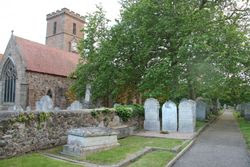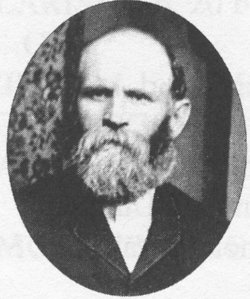A Messervy Rogue - Maximilien Messervy of Jersey
It’s always fun to find a rogue in the broader ancestral family. Maximilien Messervy, who was born 25 July 1616 in St. Saviour, Jersey is definitely a scoundrel in the true definition of the word. He was the son of Jean Messervy and Sara de Carteret, both descendants of prominent, longstanding families of Jersey. As a young man, he was infamous for having eloped to Normandy, France with 17 year old Collette La Cloche, who was a favoured niece of the powerful Sir Philippe de Carteret. Among Collette’s many virtues was her status as an heiress - they married in St. Lo, Normandy and eventually returned to Jersey. In this era, marrying without the permission of the families was a serious offence among the propertied class, or seigneurs.
Maximilien’s father died at the age of 34, meaning that in the inheritance pattern of the day, Maximilien inherited several seigneuries as the eldest son, in 1637 when coming of age. While this may sound positive, it turned out that the properties carried considerable debt, and Maximilien did not have the funds to maintain this. He sold off one of the properties and continued to struggle with creditors to take land and other substitutes in exchange for money, with little success.
Eventually he came up with a novel way of supporting his family and his properties: if you don’t have the money, make it yourself! Counterfeiting was not an invention of a more modern era but clearly was about in the 1600s. The skill of making counterfeit money was then referred to as “coining”. Maximilien roped his younger brother Francois into being an accomplice, and Maximilien’s talents as a coiner were evidenced by the assessment of London goldsmiths, who declared some of his fake Florins to be …”the most artful counterfeiting they ever saw”.
 |
| Example of Gold Florins |
More than once, Maximilien was caught and managed to elude the consequences through escape to England or support of his many influential relatives and the relatives of his wife. In 1640, however, he and Francois were arrested and charged and ended up in prison for eight months at Mont Orgueil (or Gorey informally) on Jersey. Not surprisingly, this created considerable attention due to the pedigree of the two brothers. Upon release, financial pressures once again led to Maximilien and Francois taking up their former coining business.
 |
| Mont Orgueil Castle, Jersey where Maximilien was imprisoned |
A raid on Maximilien’s residence led to discovery of coin mould and related tools, some counterfeit coins described as “cunningly sophisticated”. Messervy reached out from England to some well-placed associates to intervene but this backfired, as politics in the person of a Puritan lawyer Prynne who appealed to Sir Philippe de Carteret ( Maximilien’s wife’s uncle) to condemn the almost political interference. This resulted in Maximilien being charged with high treason ( his brother Francois was able to remain in England) . Jersey Commissioners condemned him as guilty, and he was sentenced to death, with the hanging carried out on the same day, 2 August 1645. Maximilien requested to be buried at St. Saviour, which was done secretly by the rector the next day. There is no entry in the parish record of the burial. Apparently, the secret burial was mentioned in a petition by his orphaned children attempting to retrieve some confiscated property.
 |
| St. Saviour Cemetery - unmarked burial of Maximilien |
Collette and Maximilien had three children: Rachel born 1639 and died 1640; Phillippe, born 1641 and died 1679; Sara born 1643 and died 1684. Collette died at age twenty-five, two years after Maximilien was hanged.



Comments
Post a Comment